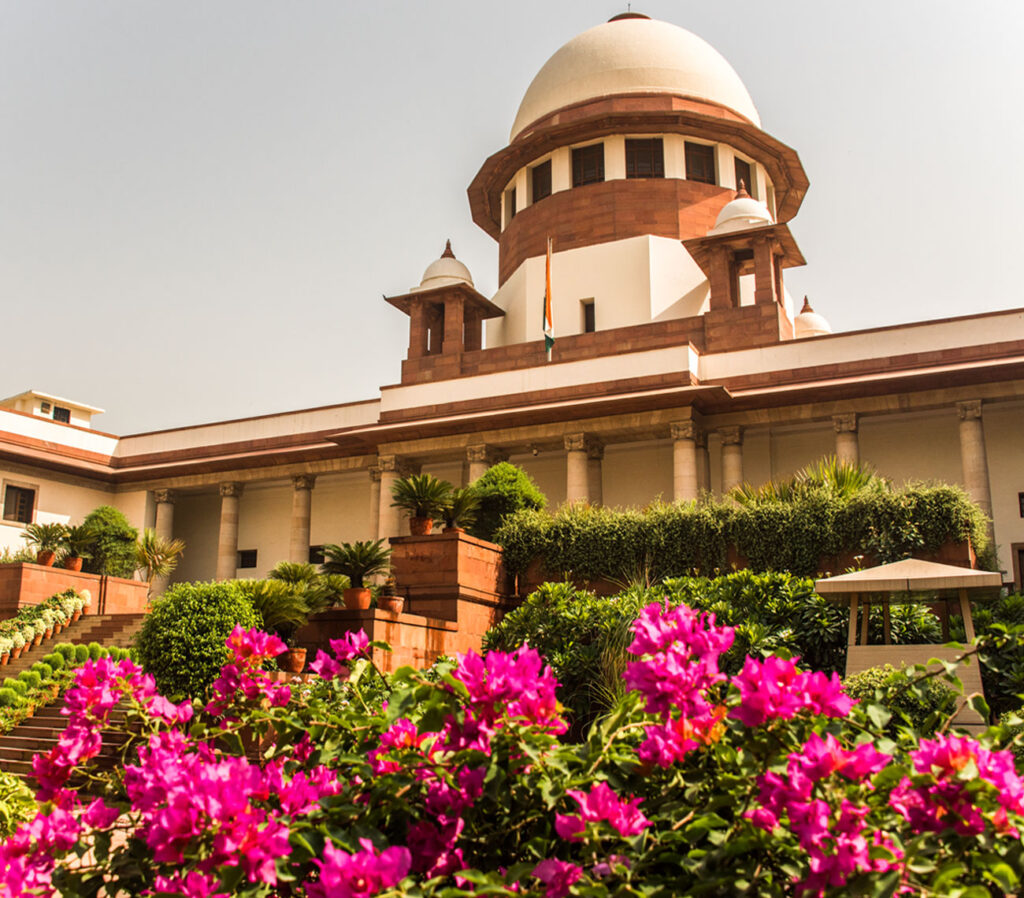New Delhi, Feb 10.
The Supreme Court on Friday refused to interfere with the appointment of Victoria Gowri as an additional judge of the Madras High Court, insisting that she was obliged to uphold rule of law and the Constitution and will be judged by the people for her conduct and decisions every day.
In a short reasoning given today, a bench led by Justice Sanjiv Khanna, said that “on taking oath the person pledges to work as a judge to uphold the Constitution and the laws”. He was sitting alongside Justice B.R. Gavai.
Obliged under oath to uphold secularism, dignity of individual irrespective of religion
“Article 51A of the Constitution casts an obligation on every citizen, and more so on every judge, to promote harmony, spirit of common brotherhood among all transcending religious, linguistic, regional or sectional diversities.”
“Principle of secularism and dignity of every individual – regardless of the religion, caste or creed, is the foundation of rule of law and equal protection of laws.”
She will be judged by people on the basis of her daily conduct, judgements
Not only is the conduct and judgments delivered considered at the time of confirmation, a judge is judged everyday by lawyers, litigants and the public, as the courts are open and the judges speak by giving reasons in writing for their decisions, the bench said.
“It goes without saying that the conduct of the judge and her/his decisions must reflect and show independence, adherence to democratic and constitutional values. This is necessary as the judiciary holds the centre stage in protecting and strengthening democracy and upholding human rights and rule of law.”
No judicial review on suitability of a candidate to be a judge
The court also ruled that the scope of judicial review in the matter of appointment of judges to the High Courts was very limited. It was confined to eligibility and not “suitability” for the post, it said.
The consultative process envisaged under Article 217(1) of the Constitution is to limit judicial review, restricting it to the specified area, that is, eligibility, and not suitability, it noted.
Judicial review only on lack of eligibility or effective consultation, not on content of consultation
Judicial review lies when there is lack of eligibility or “lack of effective consultation”. Judicial review does not lie on “content” of consultation.
Elaborating on “lack of effective consultation”, it said, the primacy of the judiciary in appointments and transfers introduces the judicial element in the process, and is a sufficient justification for absence of the need for further judicial review of those decisions ordinarily needed as a check against possible executive excess or arbitrariness.
Judicial process, plularity of judges in forming CJI opinion, inbuilt check against bias, arbitrariness
“Plurality of judges in the formation of the opinion of the CJI, is another inbuilt check against the likelihood of arbitrariness or bias, even subconsciously, of any individual.
“The judicial element being predominant in the case of appointments, and decisive in transfers, as indicated, the need for further judicial review, as in other executive actions, is eliminated.
The reduction of area of discretion to the minimum, element of plurality of judges in formation of the opinion of the CJI, effective consultation in writing, and prevailing norms to regulate discretion are sufficient checks against arbitrariness.
The opinion of the CJI formed in the manner indicated is sufficient safeguard and protection against any arbitrariness or bias, as well as any erosion of the independence of the judiciary.
Process has been made immune from litigative debate
This is also in accord with public interest of excluding these from litigative debate, to avoid any erosion in the credibility of the decisions, and to ensure a free and frank expression of honest opinion by all the constitutional functionaries, essential for effective consultation and for taking the right decision.
The bench noted the growing tendency of needless intrusion by strangers and busybodies in the functioning of the judiciary under the garb of public interest litigation, in spite of the caution in expanding the concept of locus standi.
It is, therefore, necessary to spell out clearly the limited scope of judicial review in such matters, to avoid similar situations in future.
Except on the ground of want of consultation with constitutional functionaries or lack of any condition of eligibility in the case of an appointment, or of a transfer being made without the CJI’s recommendation, these matters are not justiciable on any other ground, including that of bias, the court said, quoting earlier rulings.
In any case, the bench noted, invariably a number of shoot-down and dismissive letters and communications from all quarters are received. Only thereafter, and on consideration, the Supreme Court collegium takes a final call, which is then communicated to the government.
Political, background views not a bar to holding office
During the course of hearing, it was accepted that a number of persons, who have had political backgrounds, have been elevated as judges of High Courts and the Supreme Court, and this by itself, though a relevant consideration, has not been an absolute bar to appointment of otherwise a suitable person.
Similarly, there have been cases where the persons recommended for elevation have expressed reservations or even criticised policies or actions, but this has not been held to be a ground to treat them as unsuitable.
The issue of appointment of Victoria Gowri was brought to the attention of the collegium, and the collegium has not deemed it appropriate to withdraw the recommendation, it noted.
“We are clearly of the opinion that this court, while exercising power of judicial review cannot issue a writ of certiorari quashing the recommendation, or mandamus calling upon the collegium of the Supreme Court to reconsider its decision…”
To do so would violate the law as declared, as it would amount to evaluating and substituting the decision of the collegium, with individual or personal opinion on the suitability and merits of the person, it said.


